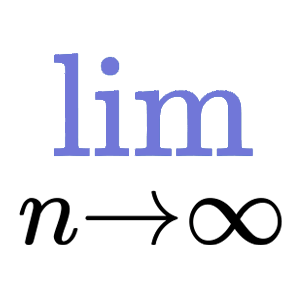Convert typst math expressions to sympy form with ANTLR and support matrix, calculous and custom functions.
Project description
Typst Sympy Calculator
About
Typst Sympy Calculator parses Typst Math Expressions and converts it into the equivalent SymPy form. Then, calculate it and convert to typst math text.
It is designed for providing people writing in typst a ability to calculate something when writing math expression. It is based on Sympy module in Python.
The typst-calculator python package is a backend for a VS Code extension, and you also can use it just for parse typst math expression to sympy form in order to do things for yourself.
Features
-
Default Math:
-
Arithmetic: Add (
+), Sub (-), Dot Mul (dot), Cross Mul (times), Frac (/), Power (^), Abs (|x|), Sqrt (sqrt), etc... -
Alphabet:
a - z,A - Z,alpha - omega, Subscript (x_1), Accent Bar(hat(x)), etc... -
Common Functions:
gcd,lcm,floor,ceil,max,min,log,ln,exp,sin,cos,tan,csc,sec,cot,arcsin,sinh,arsinh, etc... -
Funcion Symbol:
f(x),f(x-1,),g(x,y), etc... -
Calculous: Limit
lim_(x -> oo) 1/x, Integrationintegral_1^2 x dif x, etc... -
Calculous: Derivation (
dif/(dif x) (x^2 + 1)), etc... -
Reduce: Sum
sum_(k=1)^oo (1/2)^k, Productproduct_(k=1)^oo (1/2)^k -
Linear Algebra: Matrix to raw echelon form
rref, Determinantdet, Transpose^T, Inverse^(-1), etc... -
Solve Equation: Single Equation
x + 1 = 2, Multiple Equationscases(x + y = 1, x - y = 2), etc... -
Other: Binomial
binom(n, k)...
-
-
Custom Math (in typst file):
-
Define Accents:
#let acc(x) = math.accent(x, math.grave) -
Define Operators:
#let add = math.op("add") -
Define Symbols:
#let xy = math.italic("xy")or#let mail = symbol("🖂", ("stamped", "🖃"),) -
Define Functions:
# typst-calculator @func() def convert_add(a, b): return a + b
-
-
Typst Math Printer:
-
Complete
TypstMathPrinterinTypstConverter.py -
Custom Printer for
TypstCalculator.pyandTypstCalculatorServer.py
-
-
VS Code Extension:
- Develop a VS Code Extension for
Typst Calculator
- Develop a VS Code Extension for
Install
pip install typst-sympy-calculator
Usage
Difference Between parse, converter, calculator, server
-
TypstParser.py: parse typst math expression to ANTLR abstract syntax tree withTypstGrammar.g4; -
TypstConverter.py:-
convert typst math expression to sympy expression via
TypstMathConverter; -
convert sympy expression to typst math expression via
TypstMathPrinter; -
has
decoratorsfor defining custom functions, operators; -
has
define_accent,define_symbol_baseanddefine_functionfor defining custom accents, symbols and functions;
-
-
TypstCalculator.py:-
calculate sympy expression and convert to typst math expression;
-
has
subs,simplify,evalfmethods; -
has
set_varianceandunset_variancefor calculating with variance;
-
-
DefaultTypstCalculator: define many useful functions, operators, accents, symbols;- Accents, Alphabet, Greeks, Arithmetic, Common Functions, Calculous, Linear Algebra, etc...
-
TypstCalculatorServer:-
has
initmethod for initializingTypstCalculatorwith a typst file; -
can define your custom functions on your typst file;
-
has
simplify,subs,evalfmethods for calculating with typst file;
-
It is a top-down design, so you can use TypstCalculatorServer directly, or use TypstCalculator with TypstConverter.
For the usage, you can see the unit test part if __name__ == '__main__': in each files.
Sympy Expressions and Typst Math Text
from TypstCalculatorServer import TypstCalculatorServer
server = TypstCalculatorServer()
typst_math = r'1 + 1'
expr = server.sympy(typst_math)
print(server.typst(expr))
from TypstCalculator import TypstCalculator
calculator = TypstCalculator()
typst_math = r'1 + 1'
expr = calculator.sympy(typst_math)
print(calculator.typst(expr))
from TypstConverter import TypstMathConverter
converter = TypstMathConverter()
typst_math = r'1 + 1'
expr = converter.sympy(typst_math)
print(converter.typst(expr))
Typst Calculator Server
The simplest way to use it is just like TypstCalculatorServer.py:
from TypstCalculatorServer import TypstCalculatorServer
server = TypstCalculatorServer()
typst_file = os.path.abspath(r'./tests/test.typ')
server.init(typst_file)
server.return_text = True # otherwise just return sympy form
expr = server.simplify('1 + 1', typst_file)
print(expr) # 2
server.enable_subs = False
expr = server.simplify('a + 1', typst_file)
print(expr) # a + 1
server.enable_subs = True
expr = server.simplify('a + 1', typst_file)
print(expr) # 2
expr = server.simplify('b + 1', typst_file)
print(expr) # a + 2
expr = server.simplify('cmat(1, 2)', typst_file)
print(expr) # mat(1; 2)
expr = server.simplify('f(1) + f(1)', typst_file)
print(expr) # 2 f(1)
expr = server.simplify('xy + mail + mail.stamped', typst_file)
print(expr) # mail + mail.stamped + xy
and the typst files tests/test.typ
#import "cal.typ": *
// set variances
#let a = 1
#let b = $a + 1$
and tests/cal.typ just like:
// define accents
#let acc(x) = math.accent(x, math.grave)
// define operators
#let add = math.op("add")
#let f = math.op("f")
// define symbols
#let xy = math.italic("xy")
#let mail = symbol("🖂", ("stamped", "🖃"),)
Default Typst Calculator
If you have not a typst file, you can use DefaultTypstCalculator.py, it define many useful functions and symbols just like:
# Symbols
abc = 'abcdefghijklmnopqrstuvwxyz'
for c in abc:
calculator.define_symbol_base(c)
calculator.define_symbol_base(c.upper())
# Functions
@func()
def convert_sin(expr):
return sympy.sin(expr)
So you can use it by:
from DefaultTypstCalculator import get_default_calculator
calculator = get_default_calculator(complex_number=True)
calculator.return_text = True
operator, relation_op, additive_op, mp_op, postfix_op, \
reduce_op, func, func_mat, constant = calculator.get_decorators()
expr = calculator.simplify('1 + 1')
assert expr == '2'
expr = calculator.evalf('1/2', n=3)
assert expr == '0.500'
calculator.set_variance('a', '1/2')
expr = calculator.simplify('a + 1')
assert expr == '3/2'
calculator.unset_variance('a')
expr = calculator.simplify('a + 1')
assert expr == 'a + 1' or expr == '1 + a'
expr = calculator.evalf('pi', n=3)
assert expr == '3.14'
expr = calculator.simplify('max(1, 2)')
assert expr == '2'
calculator.define_function('f')
expr = calculator.simplify('f(1) + f(1) - f(1)')
assert expr == 'f(1)'
expr = calculator.simplify('lim_(x -> oo) 1/x')
assert expr == '0'
Contributing
-
Clone it by
git clone https://github.com/OrangeX4/typst-calculator.git -
Install dependencies by
pip install -r requirements.txt -
Compile ANTLR grammar by
python ./scripts/compile.py -
Debug or add your code with
TypstCalculatorServer.pyorTypstCalculator.py, etc...
It is welcome to create an issue or pull request.
Thanks
License
This project is licensed under the MIT License.
Project details
Release history Release notifications | RSS feed
Download files
Download the file for your platform. If you're not sure which to choose, learn more about installing packages.
Source Distributions
Built Distribution
File details
Details for the file typst_sympy_calculator-0.4.1-py3-none-any.whl.
File metadata
- Download URL: typst_sympy_calculator-0.4.1-py3-none-any.whl
- Upload date:
- Size: 32.1 kB
- Tags: Python 3
- Uploaded using Trusted Publishing? No
- Uploaded via: twine/4.0.1 CPython/3.9.15
File hashes
| Algorithm | Hash digest | |
|---|---|---|
| SHA256 | 334e1a5c250c848b5864e7228b8ed94aba93c761b86e2eeac92d8b66bd1bf59f |
|
| MD5 | 0a2f2f59a50cba20155cc5a297462398 |
|
| BLAKE2b-256 | 9648bffcc665afddb562ab07aa2b529e83498d992fbd5688267e4980e71a012c |












